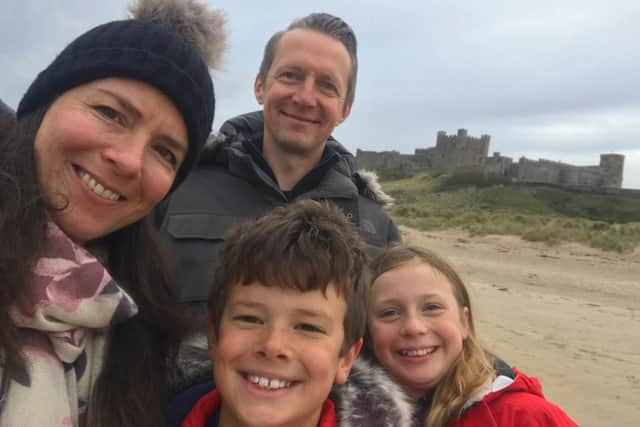Halifax mum living with inherited heart condition welcomes 'defining moment' for cardiovascular medicine
and live on Freeview channel 276
An injectable cure for inherited heart muscle conditions that can kill young people in the prime of their lives could be available within a few years, after an international team of researchers were announced as the winners of the British Heart Foundation’s Big Beat Challenge.
The global award, at £30m, is one of the largest non-commercial grants ever given and presents a “once in a generation opportunity” to provide hope for families struck by these killer diseases.
Advertisement
Hide AdAdvertisement
Hide AdThe winning team, CureHeart, will seek to develop the first cures for inherited heart muscle diseases by pioneering revolutionary and ultra-precise gene therapy technologies that could edit or silence the faulty genes that cause these deadly conditions.


The team, made up of world-leading scientists from the UK, US and Singapore, were selected by an International Advisory Panel chaired by Professor Sir Patrick Vallance, Chief Scientific Advisor to the UK Government.
Inherited heart muscle diseases can cause the heart to stop suddenly or cause progressive heart failure in young people. Every week in the UK, 12 people under the age of 35 die of an undiagnosed heart condition, very often caused by one of these inherited heart muscle diseases, also known as genetic cardiomyopathies. Around half of all heart transplants are needed because of cardiomyopathy and current treatments do not prevent the condition from progressing.
It’s estimated that one in 250 people worldwide - around 260,000 people in the UK, including up to 22,000 in Yorkshire and the Humber alone - are affected by genetic cardiomyopathies, with a 50:50 risk they will pass their faulty genes on to each of their children. In many cases, multiple members of the same family will develop heart failure, need a heart transplant, or are lost to sudden cardiac death at a young age.
Advertisement
Hide AdAdvertisement
Hide AdElizabeth Sanderson, from Halifax, is living with an inherited heart condition called arrhythmogenic right ventricular cardiomyopathy (ARVC). The condition is a rare disease of the heart muscle that causes fatty deposits to build up in the heart. This can disrupt the heart’s rhythm, increasing the risk of a cardiac arrest.


The former keen athlete, who ran with the Halifax Harriers Athletics Club, was diagnosed with the condition aged 36, after collapsing during a solo run in December 2016.
Mum-of-two Elizabeth, now aged 43 said: “I started to feel lightheaded, so stopped running - then I put my hand to my chest and felt my heart beating fast. I felt terrible - I couldn’t see and felt sick. I collapsed and woke up to find myself lying in a country lane all alone. I managed to walk around two metres and got into a field, where I collapsed again. I came to and called my husband Nick to tell him where I was and what had happened, so he got into the car and managed to get me home.
“I just wanted to sleep, but Nick took action and called for an ambulance. The next thing I knew the paramedics were in my bedroom and my heart rate was 240 beats per minute. I was taken to hospital and underwent several tests and scans. Doctors confirmed I had ARVC and would need to be fitted with an implantable cardioverter defibrillator (ICD) to help control any abnormal heart rhythms caused by my condition.
Advertisement
Hide AdAdvertisement
Hide Ad“When doctors told me I had ARVC, I felt pretty devastated. They said I was so lucky to be alive, because for some people, they can find this condition following death. I found it hard to compute, because for all I knew, I was fit, healthy and looked after myself. To then be told I would never be able to race again felt like a big part of my identity had been taken away.
“I’m coming to terms living with ARVC. My children Jessica (13) and Thomas (10) are being screened annually, and my mum, dad and sister have all undergone genetic screening too.
“This research funding gives me hope that a cure for inherited heart conditions, like the one I live with, is on the horizon. It’s an amazing possibility and could mean that my children might not develop the condition.”